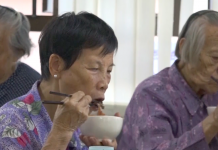Organ donors and recipients not only face health challenges, but also trouble getting insurance
Reporters: Ada Chung, Daphne Li, Soohyun Kim
Editors: Elaine Ng, Selena Chan
For those suffering from organ failure, organ transplants can provide hope for a new life. But in Hong Kong, the wait for an appropriate donor organ can be long, sometimes too long.
According to the Department of Health, there were 2,153 patients on the waiting list for a kidney transplant in December 2017. Only 78 patients received kidney transplants for the whole of last year, 17 from living donors. Data from the International Registry on Organ Donation and Transplantation shows the ratio of posthumous organ donation in Hong Kong has been consistently low, far behind from countries like the U.S and U.K.
In an attempt to tackle the problem of a persistently low organ donation rate, the government has organized over 500 seminars and exhibitions in hospitals and public buildings in the past two years to promote organ donation. There have also been other activities such as charter-signing drives and tours by promotional vehicles.
But according to a study conducted by an affiliate of Junior Chamber International Hong Kong in 2016, even though over 90 per cent of respondents support organ donation, only 40 per cent had registered as organ donors and less than a half them knew how to do so. Most respondents, 80 per cent, blamed this on insufficient promotion and a lack of available information on organ donation.
Chan Kwok-man, the Vice Chairman of the Hong Kong Transplant Sport Association also questions the effectiveness of these official campaigns. “I think Hospital Authority’s promotion work is not as good as those initiated by the public,” he says.
When no suitable donor organs can be found from the deceased – which make up 90 per cent of the organs used in transplant operations – medical personnel will sometimes seek living donors for operations such as kidney and liver transplants.
In order to prevent any unethical incidents involving living donors, the government set up the Human Organ Transplant Board (HOTB) in 1995 to curb any human organ trade in Hong Kong. If the donor and recipient are not genetically related or have not been married for more than three years, a written approval has to be obtained from the HOTB before surgery can take place.
Doctors conduct thorough examinations and tests on a potential living donor before performing any surgery to assess any risk of complication, and again after the operation. But even when a kidney donor is given a clean bill of health, with proven normal kidney function, they may find themselves denied private medical insurance coverage and told the donation was a preexisting condition after the transplant surgery.
In Hong Kong, donors are required to disclose any known pre-existing medical conditions when purchasing health insurance. Some insurance companies will not insure organ donors or only provide partial coverage. But a study published in the Journal of the American Medical Association shows the mortality rates of kidney donors are no higher than for similar individuals who have not donated organs. The results are similar to other studies that show organ donors are not more susceptible to illness or death.
In order to encourage organ donation, countries like New Zealand are compensating donors for time taken off work to recover from their operations. Yet, despite the persistently low rate of organ donation in Hong Kong, donors may find themselves potentially penalized for helping to save life.









































